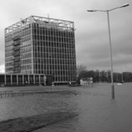New advice for commercial property tenants to avoid flood damage
PallMallAfter new reports revealed the unrelenting wet weather across
the UK has been costing British firms millions of pounds every day,
insurance broker Swinton Commercial has offered fresh advice to
tenants on how to minimise damage caused by flooding.
A recent study from the Association of British Insurers (ABI)
showed that flooding caused by the recent freak wet weather is
forcing insurers to pay out upwards of £17 million a day for
property damage.
With thousands of businesses across the country affected,
Swinton Commercial is encouraging tenants to check their insurance
policies in the event of any further inclement weather this
summer.
Brian Greenfield, chartered insurance broker at Swinton
Commercial, said: "It's always a good idea to check your business
insurance policy as a starting point in the event of a flood. If
you need to make a claim, it's a good idea to make a record by
photographing any damage to your business premises, equipment and
goods.
"Always check with your business insurance company before you
start salvaging goods and repairing damage. They can often
recommend suitable tradesmen to help you, and may be willing to
make an interim payment to help you get your business going again
as quickly as possible.
"Local authorities usually provide skips and extra rubbish
collections for items that your insurance company has agreed you
can throw away."
Here are some of the best tips supplied by Swinton Commercial to
minimise the impact of flooding on businesses:
- It is important to turn off the electricity supply at your
business in the event of a flood. This however must be carried out
by a qualified electrician, as due to flood damage, it could be
extremely dangerous. - If you are using a pump and a generator to get water out of
your business, make sure the generator is outside as they produce
carbon monoxide fumes which can be fatal. - To begin drying your property, turn your heating on and set the
temperature between 20-22 degrees centigrade. Do this only if you
have oil or gas heating that has been checked by a qualified
engineer. - When using hoses to clean, harmful residue from the flood can
be moved into the air, always use a garden hose rather than a high
pressure hose, to reduce the risk of this.
It's also worth checking with your broker what damaged items are
covered within your policy.
—
Pall Mall Estates have a wide range of low cost commercial properties across the UK.
Take a look at our available spaces here or get in touch with our experienced team here.







